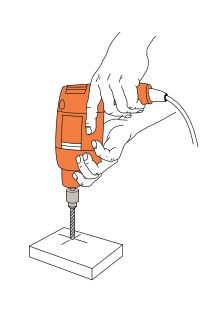Korean/Words/ㄸ
Appearance
| This is a primary, secondary and/or original Eurasiatic research project at Wikiversity. |
| |
땅
[edit | edit source]
♦ those countries that have such a name;
♦ other countries that have such a name for the first-level administrative division.
- Roman: ttang
- Noun
- 강이나 바다와 같이 물이 있는 곳을 제외한 지구의 겉면. 영토(領土) 또는 영지(領地).
- earth, ground, land; territory
- Compounds
- Comparatives
땜
[edit | edit source]
- Roman: ttaem
- Noun [6]
- 금이 가거나 뚫어진 데를 때우는 일. [또 이처럼] 잘못된 일을 그때그때 필요에 따라 임시변통으로 고치는 일.
- doing with the tinker's dam, (which has implausibly degenerated into) tinker's damn, tinker's curse
- Compounds
- Relatives
- 때우다 (ttae-uda, "to tinker, solder, blaze") [9]
- Comparatives
- See also
- 거란 (georan, "Khitan")
또
[edit | edit source]- See: #도
- [부사] 어떤 일이 거듭하여.
- [부사] 그 밖에 더.
- [부사] 그럼에도 불구하고.
또한
[edit | edit source]- See: #도
- [부사] 어떤 것을 전제로 하고 그것과 같게.
- [부사] 그 위에 더. 또는 거기에다 더.
뚫다
[edit | edit source]
- 구멍을 내다.
- to make, bore, peirce a hole through.
- 막힌 것을 통하게 하다.
- to unblock something blocked.
- Comparatives
- þȳrel #Old English "hole"
- thirl #English
- þȳrlian #Old English "to make a hole through"
- þurh #Old English "through"
- þuruh #Old English "through"
- thurh #Middle English "through"
- thurgh #Middle English "through"
- through #English [12]
- thorough #English
- thrill #English [13]
- drill #English [14]
- duru #Old English "door"
- door #English
뜻
[edit | edit source]
The German Unity Flag
"Dem Deutschen Volke"
"To the German People" (inscribed motto)
- Roman: tteut
- Noun
- Compounds
- 뜻하다 (-hada, "to intend, mean, signify")
- 뜻맞다 (-majda, "to agree; to be of a mind")
- 뜻대로 (-daero, "at will, in one's own way"
- 뜻밖 (-bakk, "surprise, accidence")
- Relatives
- 말 (mal, "speech, language")
- 말씀 (mal-sseum, honorific "speech, language")
- 말뜻 (mal-tteut, "linguistic meaning") [17]
- 띠앗 (ttiat, "brotherhood, fraternity, friendliness") cf. theodism
- Inventions
- 덕의지 (德意志, deog-uiji) (Chinese)
- 독일 (獨逸, dog-il) (Japanese)
- 도이치 (道理致, 導理致, doichi) (new Korean)
- Comparatives
| ||||||||
Footnotes
[edit | edit source]- ↑ https://ko.dict.naver.com/#/search?query=땅개
- 키가 아주 작은 개.
- 키가 작고 됨됨이가 단단하며 잘 싸다니는 사람을 속되게 이르는 말.
- ↑ https://ko.dict.naver.com/#/search?query=땅콩
- 콩과의 한해살이풀... 열매는 씨방 밑부분이 길게 자라 땅속으로 들어가 익는 협과(莢果)이다. 브라질이 원산지로 주로 모래땅에서 나는데 북아메리카, 프랑스, 중국을 거쳐 우리나라에 들어와 널리 재배된다. =호콩.
- ↑ "The suffix is most common in Iran, which contains thousands of -abads, most of them small villages."
- ↑ cf. Korean 밭 (bat)
- ↑ Having high and wide cheekbones, he looks like an East-Asian descendant.
- ↑ https://ko.dict.naver.com/#/search?query=땜
- ↑ Tinker or tinkerer is an archaic term for an itinerant tinsmith who mends household utensils.
- ↑ Tinkers are associated with gypsies or Romani people.
- ↑ 표준국어대사전
- 뚫리거나 깨진 곳을 다른 조각으로 대어 막다.
- 간단한 음식으로 끼니를 대신하다.
- 다른 수단을 써서 어떤 일을 보충하거나 대충 해결하다.
- ↑ https://ko.dict.naver.com/#/search?query=뚫다
- ↑ https://en.wiktionary.org/wiki/뚫다
- ↑ See: Metathesis
- ↑ See: Metathesis
- ↑ See: Metathesis
- ↑ https://ko.dict.naver.com/#/search?query=뜻
- ↑ https://en.wiktionary.org/wiki/뜻
- ↑ Linguistics centers around this abstract concept, namely, semantics.
